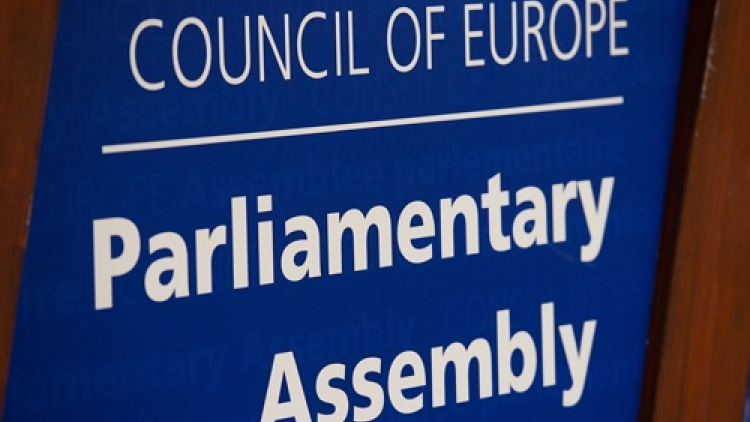France’s Policy Against “Sects” Disavowed by the Council of Europe
By Willy Fautre | Апр 12, 2014

HRWF- The controversial report of the French Deputy Rudy Salles about “The Protection of Minors against Excesses of Sects” has been rejected as such by the Parliamentary Assembly of the Council of Europe (PACE).
On Thursday 10 April, the PACE deeply amended the resolution to which the draft report of Rudy Salles was attached and rejected his draft recommendation.
The project of a “European Observatory on sects” and forging a “European consensus” on the issue of “sects” has failed
– The Recommendation did not obtain 2/3 of the votes (28 for, 18 against and 13 abstentions) and was not adopted. It aimed to:
1.1. conduct a study about the scale of the phenomenon of sects affecting minors at European level, on the basis of information provided by the member States;
1.2. set up a working group to exchange information between member States on excesses of sects affecting minors and to develop good practices for preventing the problem; and
1.3. seek to improve co-operation at European level with a view to implementing joint activities to prevent excesses of sects and protect minors against them.
The French “model” of policy against “sects” has not been adopted
– Concerning the Resolution, many amendments have been adopted and point 6 which contained very alarming recommendations to the Member States has disappeared, in particular:
6.6. to carry out awareness-raising measures about the scale of the phenomenon of sects and excesses of sects, in particular for judges, ombudsmen’s offices, the police and welfare services;
6.7. to adopt or strengthen, if necessary, legislative provisions punishing the abuse of psychological and/or physical weakness, and enabling associations to join proceedings as parties claiming damages in criminal cases concerning excesses of sects;
6.8. to support, including in financial terms, the action of private bodies which provide support for the victims of excesses of sects and their relatives and, if necessary, encourage the establishment of such bodies;
So, the French “model” of policy against “sects” has not been endorsed. The adopted Resolution expresses general concern about abuses against minors, but also recommends respecting the rights of children and parents to freedom of religion or belief and freedom from discrimination.
No discrimination between religions and non-traditional religious movements
The only point that remains disputable in the Resolution is:
8. The Assembly also calls on national parliaments to set up study groups on the protection of minors, in particular those belonging to religious minorities.
However, this point is countered by the next and last one:
9. The Assembly calls on member States to ensure that no discrimination is allowed on the basis of which movement is considered as a sect or not, that no distinction is made between traditional religions and non-traditional religious movements, new religious movements or “sects” when it comes to the application of civil and criminal law, and that each measure which is taken towards non-traditional religious movements, new religious movements or “sects” is aligned with human rights standards as laid down by the European Convention on Human Rights and other relevant instruments protecting the dignity inherent to all human beings and their equal and inalienable rights.
Also point 5 states:
5. The Council of Europe has always promoted a culture of “living together” and the Assembly has spoken out on several occasions in favour of freedom of thought, conscience and religion, as well as in favour of minority religious groups, including those which have recently appeared in Europe, in particular in Recommendation 1396 (1999) on religion and democracy and Recommendation 1804 (2007) on State, religion, secularity and human rights and in Resolution 1846 (2011) и Recommendation 1987 (2011) on combating all forms of discrimination based on religion. The Assembly believes that any religious or quasi-religious organization should be accountable in the public sphere for any contraventions of the criminal law and welcomes announcements by established religious organizations that reports of child abuse within those organizations should be reported for investigation to the police. The Assembly does not believe that there are any grounds for discriminating between established and other religions, including minority religions and faiths, in the application of these principles.
Salles was referring to sexual abuses in his presentation and point 8 recommending study groups on minors in religious minorities is discriminatory and would be better applied to the Catholic Church in this regard.
Also, points 4 and 6 refer to the protection of minors but also to “parental rights” and freedom of religion or belief.
This was the main issue of concern as the French idea pushed by the anti-sect activists was to protect children from their parents’ beliefs and deny parents the right to educate their children in conformity with their own beliefs, which is guaranteed under the European Convention on Human Rights (Protocol, Article 2) and the International Covenant on Civil and Political Rights (Article 18.4).
Some MPs realized what was at stake there and the danger for human rights and introduced the right concepts in the Resolution.
See the text of the adopted resolution at http://assembly.coe.int/nw/xml/XRef/Xref-XML2HTML-en.asp?fileid=20889&lang=en















